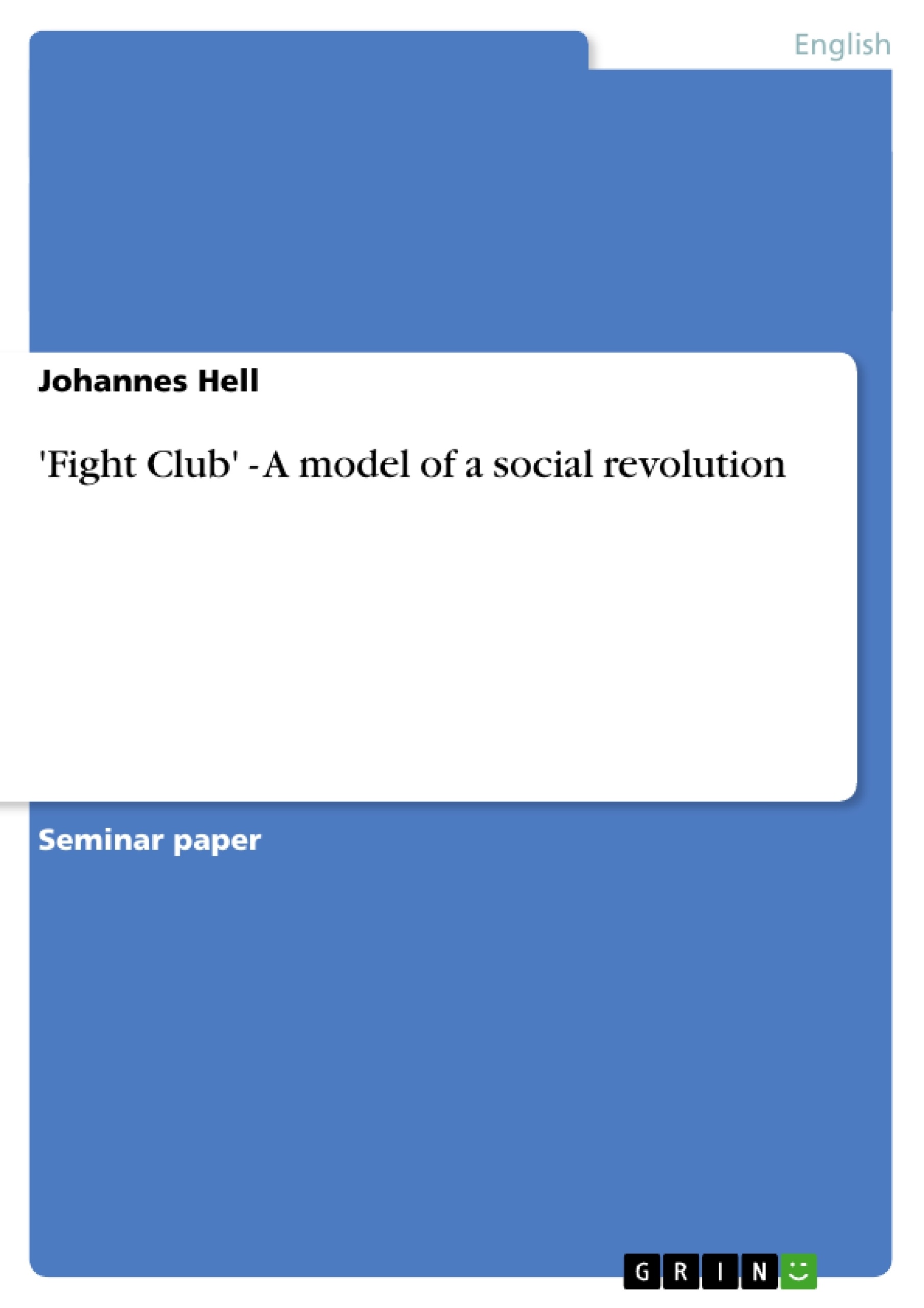"Fight Club - A model of a social revolution" deals with the conception and the possible impact of the revolutionary overthrow bestowed upon society in Chuck Palahniuk's debut novel. From a top-down perspective it illuminates affected areas, consequences and applicability.
Inhaltsverzeichnis (Table of Contents)
- 1. Approaching 'Fight Club'
- 1.1. Somnambulism as a basis for 'Fight Club'
- 1.2. About the author Chuck Palahniuk
- 1.3. The story...
- 2. Introducing the main characters
- 2.1. The narrator
- 2.2. Marla Singer
- 2.3. Tyler Durden A modern revolutionary
- 3. The Revolution of Tyler Durden
- 3.1. 'Fight Club's' depiction of our society
- 3.2. Tyler's means to overthrow the system
- 3.3. Tyler's idea of a perfect world.
- 3.4. Religion in the way of 'Fight Club',
- 3.5. The interior versus the exterior revolution
- 4. Analysis and final evaluation of 'Fight Club'
- 4.1. All is well that ends well? A look at the outcome
- 4.2. Effective writing the language of 'Fight Club'
- 4.3. Employing 'Fight Club'
Zielsetzung und Themenschwerpunkte (Objectives and Key Themes)
This text aims to explore the social revolution presented in Chuck Palahniuk's novel, 'Fight Club', by analyzing its characters, themes, and overall message.
- The nature of somnambulism and its connection to the novel's themes
- The depiction of contemporary society and its flaws as portrayed in 'Fight Club'
- Tyler Durden's revolutionary philosophy and his methods for societal upheaval
- The role of religion and its conflict with 'Fight Club's' ideology
- The distinction between internal and external revolutions
Zusammenfassung der Kapitel (Chapter Summaries)
The first chapter delves into the concept of somnambulism, drawing parallels between the sleepwalking experience and the themes explored in 'Fight Club'. It establishes a connection between the protagonist's inability to remember dreams and the novel's exploration of societal conditioning and the search for authentic self-expression. The second chapter introduces the main characters, focusing on the narrator's disillusionment with modern life and his encounters with the enigmatic Tyler Durden and the unconventional Marla Singer.
Chapter 3 examines Tyler Durden's revolutionary vision, exploring his critique of consumerism, conformity, and the manufactured identities of modern society. It analyzes his methods for instigating social upheaval and his vision for a more primal and authentic world. The chapter also delves into the conflict between 'Fight Club's' philosophy and traditional religious beliefs.
Schlüsselwörter (Keywords)
This preview focuses on themes of social revolution, consumerism, conformity, authenticity, somnambulism, societal critique, and the relationship between individual and society. It explores the concepts of interior and exterior revolutions, as well as the impact of religion on individual identity and social change. The text also examines the effectiveness of Palahniuk's writing style and the potential applications of 'Fight Club's' themes in contemporary society.
- Quote paper
- Johannes Hell (Author), 2004, 'Fight Club' - A model of a social revolution, Munich, GRIN Verlag, https://www.grin.com/document/37698




